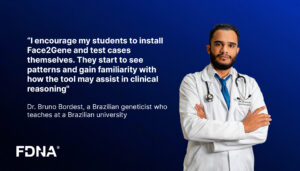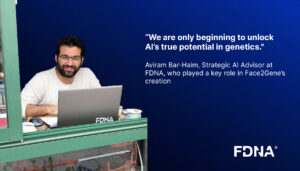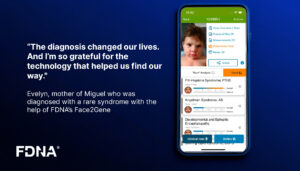“Next Generation Phenotyping (NGP) uses computer vision and deep learning to analyze physiological data, understand particular phenotype patterns, and then correlate those patterns to genes. For example, FDNA’s Face2Gene technology can identify 300-400 disorders with 90%+ accuracy using images of a patient’s face. Additional data (images or videos of hands, feet, ears, eyes) can allow NGP to detect a wide range of disorders, earlier than ever before.”
The article envisions the Future of Healthcare Trends by 2028, emphasizing a doctor-directed, patient-owned model enhanced by visual technologies. It predicts a shift towards patient empowerment, where individuals will have greater control over their medical data, facilitated by secure, interoperable systems. Doctors will leverage advanced visual technologies, including AI and augmented reality, to improve diagnostics and treatment precision. Innovations such as FDNA’s decision support tools for healthcare providers ensure continuous monitoring and personalized care. This future landscape promises a more efficient, transparent, and patient-centric healthcare system, driven by technological advancements and a collaborative approach between patients and providers.


